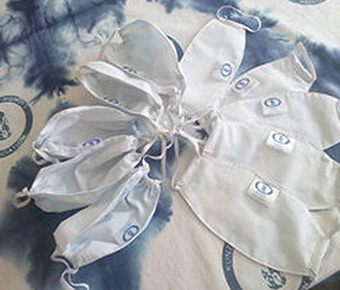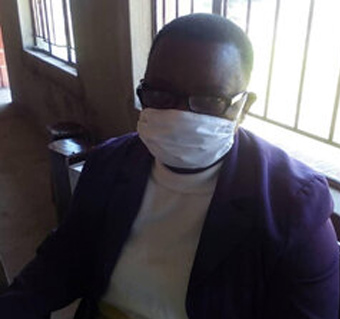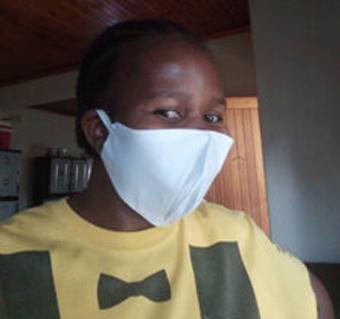
Though home to the thundering Victoria Falls, magnificent landscapes, and incredibly resilient people, Zimbabwe in the last decade has struggled with an economic downturn that has negatively impacted livelihoods. The onset of the coronavirus in the country has left many people anxious and frightful, as the virus will increase the severity of an already dire and challenging economic situation.
Like many countries, Zimbabwe ordered a nationwide lockdown in March 2020 to slow the spread of the coronavirus. The health and safety restrictions in Zimbabwe limited intercity movements, making it difficult for the United States African Development Foundation's (USADF) local implementing partner, Linkages for Economic Advancement of the Disadvantaged (LEAD) Trust, to meet the technical business advisory needs of USADF's grantees.
LEAD Trust is a 100% African owned and managed non-governmental organization (NGO) dedicated to building and restoring the dignity of disadvantaged groups and communities in Zimbabwe through sustainable livelihood options and appropriate economic mitigation initiatives. As part of its role as USADF's local implementing partner for Zimbabwe, LEAD Trust strengthens farmer associations by facilitating access to inputs and services, linking members to local and export markets, and advocating for favorable members benefits.
In the face of challenges unique to the coronavirus, LEAD Trust is innovating and leveraging digital tools, like WhatsApp, to meet the needs of USADF's grantees.
In early April, LEAD Trust created a WhatsApp platform through which USADF grantees would have a shared space to connect and communicate with Lead Trust and each other. Lead Trust also developed a schedule for discussions and online training that will equip grantees with the necessary information and support to adapt their business models and operations to withstand coronavirus shocks.
"Our focus was to find a sustainable and convenient method to communicate important and even life-saving messages with USADF's grantees," said Lee Marwa, Financial Director, LEAD Trust. "With WhatsApp, USADF's grantees feel safe, cared for, and heard. They are happy to know that USADF and LEAD Trust are still committed to them, even in these challenging times."
Recognizing an immediate needs gap for USADF grantees – many of whom do not have funds to purchase face marks or are in areas where face masks for purchase are scarce – LEAD Trust used the WhatsApp platform to provide training to grantees on making face masks.
After the training, members of USADF grantee Kunzwana Women Association in Gutu District, Zimbabwe started making face masks to distribute among the Association’s 300 members so they can return to work with some form of protection. To date, the Association members have made 164 cotton face masks and have the capacity to make 100 face masks a day for their family members and to sell in their communities, assuming sufficient materials are available. The Association has been approached by the local councilor for an order of 200 face masks for his Ward. With this outside order in place, Kunzwana consulted the Standard Association of Zimbabwe for guidance on making face masks that meet safety regulations.
In 2019, USADF invested nearly US$100,000 in the Kunzwana Women Association to purchase solar-powered generation, water pumping and refrigeration equipment to improve their capacity to supply off-grid energy services. With USADF's investment, Kunzwana drilled two boreholes, erected a perimeter fence to protect its garden from livestock, and is currently building the grading shed and office in which they will install solar panels to power irrigation and a cold storage room.



For the upcoming farming season, Kunzwana prepared the land, but social distancing measures aimed at slowing community spread of the coronavirus initially prevented the cooperative from continuing with land preparation. However, the Association members are now back working in their fields. To be compliant, the women practice social distancing as they work and hold meetings. As soon as solar installation is completed, Kunzwana will plant cabbage, tomatoes and leafy vegetables.
LEAD will continue working with Kunzwana to help it develop a concrete marketing, production and delivery plan, using the WhatsApp platform to coordinate.
At USADF, we know challenges abound as the coronavirus takes root in Africa. We also know from our 40-year history of creating pathways to prosperity for underserved communities in Africa, that Africa is not devoid of ingenuity, innovation, and grit. By coupling these virtues with resources and assistance, we can help mitigate the economic impacts of COVID-19 for the organizations and enterprises we support across Africa.

